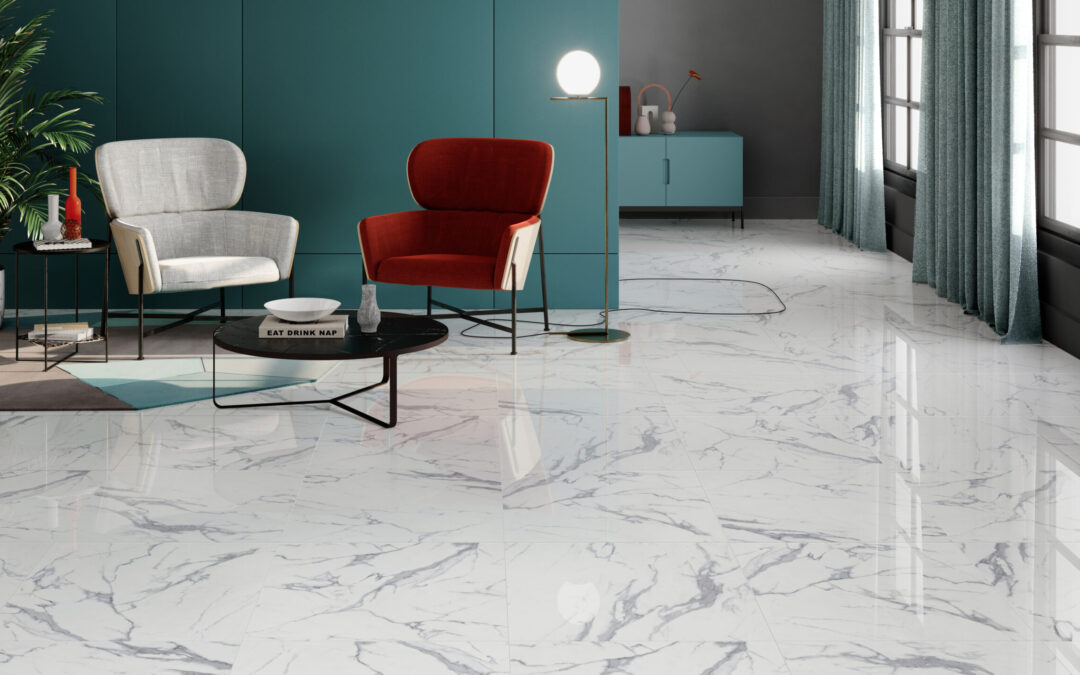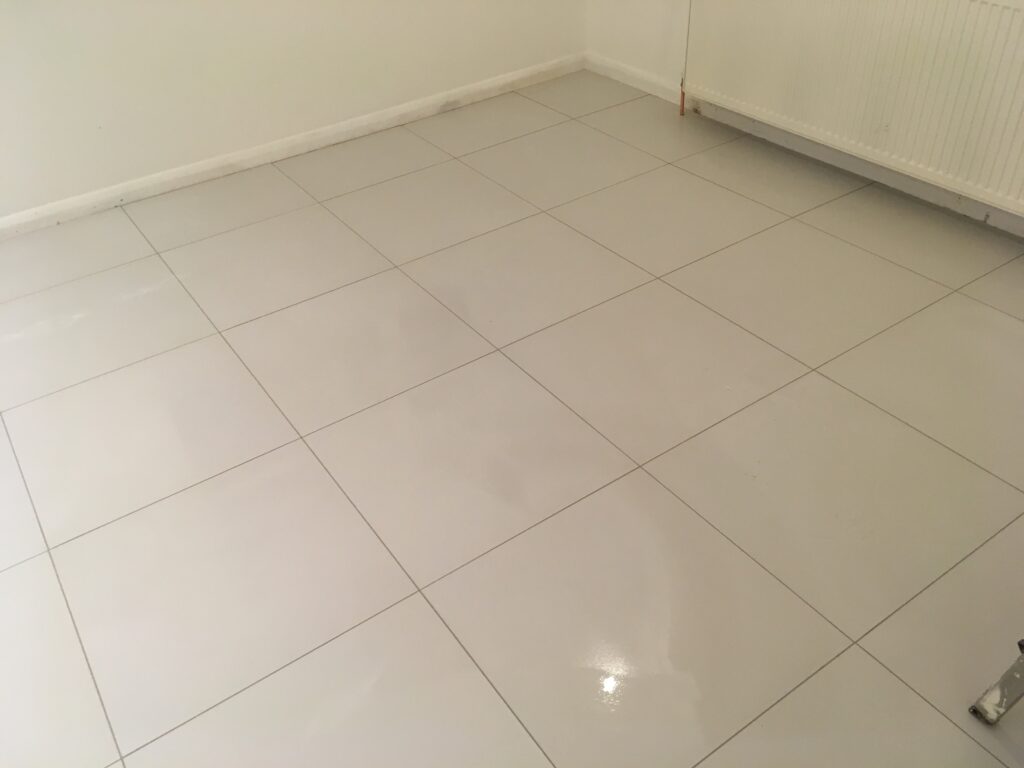When selecting the perfect flooring for your home, two of the most popular choices are ceramic and porcelain tiles. These two materials may seem similar at first glance, but they each have unique qualities that can make a significant difference depending on your needs. Whether you’re renovating your kitchen, bathroom, or installing floors throughout your home, understanding the differences between ceramic vs. porcelain tile, will help you make an informed decision. In this post, we’ll explore the key differences between ceramic and porcelain tiles, including their composition, durability, cost, and ideal use cases, to help you determine which one suits your next project.
What Are Ceramic Tiles?
Ceramic tiles are made from a mixture of clay, minerals, and water. Manufacturers fire these tiles at a lower temperature, resulting in a relatively soft and porous product. Ceramic tiles are widely used for both floor and wall applications, offering a variety of design options to complement almost any home decor. The material comes in various shapes, colors, and sizes, allowing for endless design possibilities.
Advantages of Ceramic Tiles
- Cost-Effective: Ceramic tiles usually cost less compared to porcelain tiles, making them a great choice if you’re working with a budget.
- Ease of Installation: Ceramic tiles are softer and easier to cut, making them simpler to install. This often reduces both the labor costs and installation time.
- Wide Variety of Designs: From simple designs to intricate patterns, ceramic tiles offer a wide range of colors and finishes. Whether you want a modern or a more classic look, ceramic tiles will meet your needs.
Disadvantages of Ceramic Tiles
- Less Durability: Ceramic tiles are not as durable as porcelain tiles. They are more prone to cracking and chipping under heavy impact or pressure.
- Higher Porosity: Ceramic tiles are more porous, which means they absorb moisture easily. If not properly sealed, they might stain or become damaged by water exposure.
What Are Porcelain Tiles?
Porcelain tiles are made from a more refined clay mixture and fired at a much higher temperature than ceramic tiles. This process results in a denser, harder, and less porous material. Manufacturers design porcelain tiles to be more durable and resistant to moisture, making them ideal for high-traffic areas and spaces prone to humidity, such as bathrooms and kitchens.
Advantages of Porcelain Tiles
- Superior Durability: Porcelain tiles are incredibly durable. They resist scratches, chips, and cracks, making them perfect for high-traffic areas.
- Moisture Resistance: Due to their low porosity, porcelain tiles absorb very little moisture. This feature makes them perfect for wet areas like bathrooms, kitchens, and even outdoor spaces.
- Low Maintenance: Porcelain tiles are easier to clean and maintain. They don’t stain easily, and they resist dirt and grime buildup, which reduces cleaning time.
Disadvantages of Porcelain Tiles
- Higher Cost: The increased durability and better quality of porcelain tiles usually lead to a higher price. Expect to pay more for both materials and installation.
- Difficult Installation: Porcelain tiles are harder to cut and install. This may require specialized tools and professional installation services, which can increase the total project cost.
Key Differences Between Ceramic vs. Porcelain Tile
- Composition & Firing Process: Ceramic tiles are made from a mixture of clay and minerals and fired at lower temperatures, making them more porous. In contrast, porcelain tiles are made from finer clay and fired at much higher temperatures, creating a denser, more durable product.
- Durability: Porcelain tiles are stronger and more resistant to impact, scratches, and moisture than ceramic tiles, making them ideal for high-traffic and wet areas.
- Moisture Absorption: Ceramic tiles are more porous, meaning they absorb moisture unless sealed. Porcelain tiles, with their low absorption rate, perform better in moist conditions.
- Cost: Ceramic tiles generally cost less than porcelain tiles, both in terms of materials and installation.
- Installation: Ceramic tiles are easier to cut and install, which makes them a good choice for DIY projects. Porcelain tiles, however, require specialized tools and professional help due to their hardness.
When to Choose Ceramic Tiles
Ceramic tiles are a great option for dry areas with light to moderate foot traffic. Use them in living rooms, dining areas, and bedrooms where heavy wear and tear won’t be an issue. If you’re installing tiles in a low-moisture environment and want an affordable solution, ceramic tiles are an excellent choice. Additionally, ceramic tiles are suitable for DIY projects because they are easier to cut and install.
When to Choose Porcelain Tiles
Porcelain tiles are the ideal choice for high-traffic areas or spaces exposed to moisture. They work perfectly in bathrooms, kitchens, basements, and entryways, where water exposure and foot traffic are common. If you’re willing to invest in long-lasting durability and low-maintenance flooring, porcelain tiles are the better option. Although they are pricier, they can endure for decades with minimal upkeep.
Ceramic vs. Porcelain Tile Maintenance
- Ceramic Tiles Maintenance: Ceramic tiles require simple care like sweeping and mopping regularly. You should seal ceramic tiles periodically to prevent moisture absorption and staining, especially in areas with higher humidity.
- Porcelain Tiles Maintenance: Porcelain tiles are low-maintenance. Clean them with a damp mop and mild detergent, and they will remain in excellent condition. Porcelain tiles don’t need frequent sealing because of their resistance to moisture.
Conclusion: Which Tile is Right for Your Home?
Choosing between ceramic and porcelain tiles depends on the specific needs of your home. Ceramic tiles are perfect for budget-conscious homeowners or those who need flooring for dry areas with low traffic. They’re also great for DIY projects due to their ease of installation. Porcelain tiles, however, excel in high-traffic areas, spaces with high humidity, and places where durability is paramount. Their water resistance, low maintenance, and extended lifespan make them ideal for kitchens, bathrooms, and high-traffic zones.
Call to Action (VCH Flooring)
At VCH Flooring, we understand that choosing the right tile can be overwhelming. Our team of experts can guide you through the decision-making process and help you select the perfect flooring for your home. Whether you prefer the affordability of ceramic tiles or the durability of porcelain, we have a wide selection to fit your needs. Contact us today to schedule a consultation, and we’ll help you transform your space with the ideal tile solution.
Contact Us
Website: https://vchflooring.com
📞 Call us today at 8563724937
Email: vchflooringleads@gmail.com
Address: 1812 Underwood Blvd, Delran, NJ 08075


